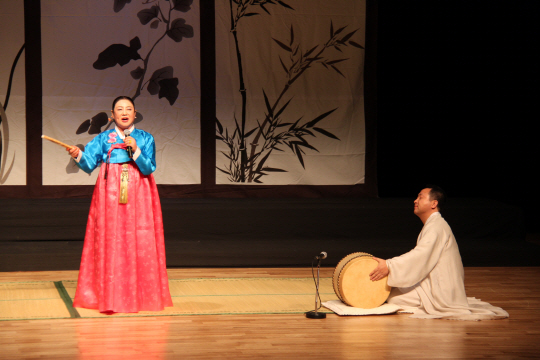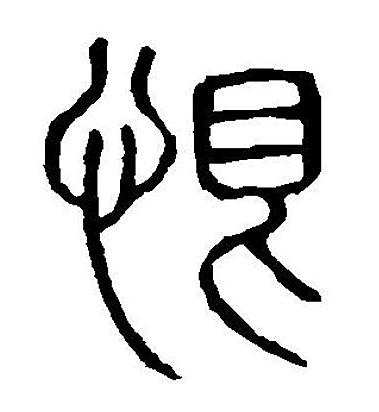The Essence of Han (한): That Indescribable Emotion
Some words just don’t translate. If you’ve ever tried to translate from Korean the emotion of han (한, 恨) or just tried to explain it to someone, you’ll understand what I mean. Wikipedia’s attempt goes like this: “Han, or haan, is a concept of an emotion, variously described as some form of grief or resentment, among others, that is said to be an essential element of Korean identity by some, and a modern post-colonial identity by others.”1 As you see, they too are having difficulty with being concise. In this Blast from the Past, Adam Volle discusses whether han is distinctively Korean (“Is ‘Han’ Uniquely Korean?” March 2015), rather than a one-syllable word that has no one-word counterpart in English. This is followed by a piece by Jonathan Chiarella on expressing han in song by pansori singer Lee Im-rye (“The Voice of ‘Han,’” April 2016) for your reading enjoyment. — Ed.
Is “Han” Uniquely Korean?
One fact well established by the globalization of our age is that emotional experiences are universal among peoples, if not individuals. Nevertheless, many Koreans and students of their culture somehow continue to accept the existence of what the popular blog “Ask the Korean!” once satirically called “super special Korean emotions.”2
Much hay is particularly made of han – the emotionally burdensome sense of having been badly wronged and being helpless to ever rectify the injustice. No non-Korean should have trouble understanding that idea, yet in a 2009 article for The Korea Times, columnist Jon Huer wrote that han is a “uniquely Korean” concept that “explains much of ‘Korean-ness.’”3 John M. Glionna defined han for The Los Angeles Times as “the ineffable sadness of being Korean” and claimed, “For outsiders, grasping the notion is key to fathoming the Koreans themselves.”4

For all that such writers have attempted to weave an air of oriental mystery around the concept, people throughout the world would nod their head knowingly at its description. In fact, an entire genre of American music arguably coalesced around the notion: the Blues, sung by African-Americans in the Deep South. Ironically, even the word han comes from outside Korea. Han is actually the Korean pronunciation of the classic Chinese word hen, meaning “regret” or “unresolved revenge.”
Mind, it’s understandable that Koreans believe themselves particularly cursed. Another universal tendency among all people is to self-centeredly assume one’s own troubles are unique or rare. Rather than fight this negative impulse, however, the concept of han indulges and elevates this mistaken feeling into a national virtue.
Like other exaggerations promoted by Korean nationalism (for example, the idea that Koreans are pure-blooded or the supreme righteousness of Admiral Yi Sun-sin), Koreans’ overemphasis on their difficulties through han probably dates back to the Japanese colonial period. Prior to Japan’s annexation of Korea in 1910, there was little reason for Koreans to feel sorry for themselves. Until then, the history of the peninsula had been relatively peaceful. Only two truly devastating invasions had occurred in over a millennium.
It’s of course impossible to begrudge the men and women who lived through the colonial period, war, and dictatorships the bitterness they defined as han. Like so much else in South Korea, however, han is fast becoming dated. South Koreans now live in a high-income, advanced economy frequently listed among the world’s top ten by various metrics. It’s now a privilege to be a South Korean.
Regardless, han cannot be called a myth; how can a felt emotion be a myth? The feeling is real. Say instead that in the twenty-first century, the concept of han is in need of some reconceptualization.
The Voice of Han
While South Jeolla has produced baduk (aka go) legends seen in the news so much lately [in 2016], North and South Jeolla have also been the birthplace or adopted home of the legends of pansori (판소리), a traditional Korean performance art that can be thought of as an emotional, somber musical play performed by a singer (traditionally female) and a percussionist (traditionally male). Jindo, specifically, is the birthplace of Lee Im-rye, a renowned pansori singer. While the drums and singers are tangible, the practice of pansori itself is listed as Korea’s 5th Important Intangible Cultural Asset, and Lee became Gwangju’s Important Cultural Property No. 15 in 1987. Her story even formed the basis for a TV drama in 1994.
After a few years in Seoul, Lee adopted Gwangju as her home, where she has long performed at the Gwangju Traditional Culture Hall at the foot of Mt. Mudeung, in addition to performances abroad, usually in the USA. She specializes in the Gangsanje (강산제) style, a branch of the Seopyeonje school born in South Jeolla – the softer and smoother school – as compared to North Jeolla’s Dongpyeonje school, known for is staccato and sharp crescendo. It’s the especially lyrical and poetic content and clear enunciation of Gangsanje that drew Lee to the Gwangju area.

She began her pansori journey at the age of 15 in the 1950s, studying under Lee Byeong-gi in Sunchang for seven years, but the initiative was on her own. Local schools were not promoting pansori as cultural revival, nor was pansori a family legacy. In fact, like several musical and sports masters, it was her dedication and passion that drove her, despite the fierce opposition of her parents to her career choice. In addition to her status as a Gwangju cultural asset, she has been honored in industry awards ceremonies locally (1969, 1990) and nationally (1984, 1993), and even received a presidential award (1991). In her experience, the sound of pansori has stayed traditional; the changes have been in the lives of pansori performers, owing largely to differences in Korean society at large over the years. Performers had to practice all day and perform almost every day to eke out a living. Young people’s schooling ended much earlier, and they set out on their path in life at a younger age. Contrasting with her own childhood, everyone learning pansori nowadays enjoys a full high school education.
Much like Western opera, all the music is performed live and the songs are long and narrative. Key differences in the performance are that while the drummer or drum may cut out for an interval, the singer continues in a long solo. Qualitatively, the songs are somber and tragic, unlike the classical Greek division of comedies and tragedies, and the music is far different, of course. The theme of han (한, 恨) is a most distinctive hallmark of pansori. With Seopyeonje being no exception, Jeolla has produced the most pansori performers and the four main schools of pansori. Lee believes the reason is due to Jeolla’s history as a region of national neglect and repression; the area also has a long history as the destination for Joseon Dynasty exiles. (More recently, the Jeolla area was not afforded government funding during the Park Chung-hee industrialization period and was infamously repressed during Chun Doo-hwan’s grip on power.)
“What is the best environment,” I asked, “to hear pansori?” Lee recommended not the austere or even majestic and quiet performance halls. The real spirit of pansori, she suggested, is best enjoyed outdoors – not only in the mountainous surroundings of the semi-secluded cultural hall where she works, but also within the outdoor festival scene, where a large crowd will spontaneously gather round in a circle. Her reason for choosing pansori as her vocation is the same as the reason she recommends that non-Koreans experience pansori: It captures the essence of the Korean spirit in a very distinctive manner.
Lee still actively performed and conducted traditional one-to-one instruction [in pre-pandemic years], and she has also taught classes at the Gwangju Performing Arts High School and Jeonnam State University.
Arranged by David Shaffer.
References
1 Han. (2021, December 10). In Wikipedia. https://en.wikipedia.org/wiki/Han_(cultural)
2 T. K. (2008, April 25). Super special Korean emotions? Ask a Korean. http://askakorean.blogspot.com/2008/04/super-special-korean-emotions.html
3 Huer, J. (2009, March 23). Psychology of Korean Han. The Korea Times. https://www.koreatimes.co.kr/www/news/opinon/2012/08/272_41770.html
4 Glionna, J. M. (2011, January 12). A complex feeling tugs at Koreans. The Los Angeles Times. https://www.latimes.com/archives/la-xpm-2011-jan-05-la-fg-south-korea-han-20110105-story.html







